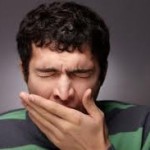Insomnia is the incapability to acquire sufficient quantity or poor quality of sleep. There is a trouble in falling asleep, staying asleep and awakening of too early in the morning. A person with insomnia does not feel revived once they wake up. Insomnia could be the reason of irritability, having trouble in concentrating, fatigue and lack of energy throughout the day.
Are there are types of insomnia?
Insomnia have two types, the transient or short term, the intermittent or known as on and off and the chronic or constant. Transient or short term insomnia last for one night to only some weeks. Intermittent if the insomnia happens from time to time. Chronic insomnia if it happens almost every night and last for more than a month.
What are the causes of insomnia?
The transient and intermittent insomnia normally happens in a people having temporary condition in their lives and no medication needed like the following:
- Having a jet lag.
- Having disagreement with the loved one.
- Intense temperature.
- Environmental loud noise.
- Medication undesirable effects.
The chronic insomnia is more complicated one because it occurs due to physical or mental illness like the following:
- Psychiatric conditions like depression.
- Having sleep apnea and snoring.
- Â Intake of food or drinks containing caffeine.
- Change in sleep pattern due to change in shifting at work.
- Too much stress due to sudden loss of a loved one or job.
- Frequent nightmares or panic attacks when sleeping.
- Excessive worrying if a person will be able to fall asleep or not that can lead to anxiety. The more fear of getting asleep the more difficult it become.
Insomnia can be experience by men and women in all ages but it is mostly happen to elder women after having menopause. People normally experience difficult in sleeping as growing older.
Sleep is very important for all of us for physical and mental revitalization. It has two cycles the rapid eye movement or REM and the non rapid eye movement or NREM. Dreaming usually occurs in the rapid eye movement cycle. The non rapid eye movement has four stages. The stage I is when a person go through calm wakefulness, stage II is the beginning stage of light sleep, stages III and IV are the growing level of deep sleep. Mostly of the stage IV sleep or also known as delta sleep happens in the first number hours of sleep. A stage of rapid eye movement sleep usually follows the stage of non rapid eye movement sleep.
What are the symptoms of insomnia?
A person with insomnia can not begin a day revitalized from a good quality of sleep. The following are the symptoms:
- A person with insomnia feels tired in a day.
- He or she wakes too early in the morning and may not be able to go to sleep.
- A person with insomnia experiences an agitated unsatisfying sleep.
- His or her sleep is easily disturbed at night.
What is the Natural Way to Treat Insomnia?
Sleep is very essential in our everyday life. Having insomnia may bring interruptions to our goal and daily activities. The following are the natural ways to treat insomnia that may bring a deep and good night sleep for everyday.
1.    Meditation
 Have a meditation for 15 minutes or more before going to sleep. A person encounters sleep problem because of the incapability of the mind to relax or calm down. One of the studies revealed that our mind throughout the bedtime can influenced the level of cortisol, the stress hormone, in the blood the next morning. Having a stressful mind during bedtime will tend to increase the level of cortisol that will only make the mind busy all throughout the entire sleep. So let your mind stress free by having a meditation before going to sleep.
Have a meditation for 15 minutes or more before going to sleep. A person encounters sleep problem because of the incapability of the mind to relax or calm down. One of the studies revealed that our mind throughout the bedtime can influenced the level of cortisol, the stress hormone, in the blood the next morning. Having a stressful mind during bedtime will tend to increase the level of cortisol that will only make the mind busy all throughout the entire sleep. So let your mind stress free by having a meditation before going to sleep.
2.    Feeling sleepy
 Go to bed when you already feel sleepy. Do not wait for the onset of sleep for it will only cause anxiety. If you don’t get asleep within half an hour have a meditation or read a book. Keep in mind that a peaceful and stress-free mind will be the most effective to have a deep and relaxing slept.
Go to bed when you already feel sleepy. Do not wait for the onset of sleep for it will only cause anxiety. If you don’t get asleep within half an hour have a meditation or read a book. Keep in mind that a peaceful and stress-free mind will be the most effective to have a deep and relaxing slept.
3.    Good diet
 Eating a good diet will help a lot to have a deep, good night sleep. Have a huge-size breakfast, a medium-sized lunch and a small-sized dinner. Eating heavy meals before going to bed will only make the digestive system stress out that will lead trouble in going to a deep sleep. Avoid fatty and oily foods that are not easy to digest. The most recommended are the foods rich in carbohydrates like bread and cereals.
Eating a good diet will help a lot to have a deep, good night sleep. Have a huge-size breakfast, a medium-sized lunch and a small-sized dinner. Eating heavy meals before going to bed will only make the digestive system stress out that will lead trouble in going to a deep sleep. Avoid fatty and oily foods that are not easy to digest. The most recommended are the foods rich in carbohydrates like bread and cereals.
4.    Lots of water
 Drinking a lot of water will remove all the toxins from the kidney because according to the Chinese waking up a lot of times all through the night can be due to the weakness of Jing that can be found in the kidney. On the other hand, lessen the intake of fluid after 6 in the evening to avoid sleep interruption due to call for urinating.
Drinking a lot of water will remove all the toxins from the kidney because according to the Chinese waking up a lot of times all through the night can be due to the weakness of Jing that can be found in the kidney. On the other hand, lessen the intake of fluid after 6 in the evening to avoid sleep interruption due to call for urinating.
5.    Caffeine
 Don’t drink or eat foods containing caffeine before going to bedtime for it has a stimulant effect that will only cause trouble in falling asleep.
Don’t drink or eat foods containing caffeine before going to bedtime for it has a stimulant effect that will only cause trouble in falling asleep.
6.    Massage
 Oil massage is one of the helpful ways to relieve stress. Let your body massage with oil one to two times a week before having a bath to relieve from stress and increase energy level. It also helps to eliminate toxins from the body and achieve a lot better complexion.
Oil massage is one of the helpful ways to relieve stress. Let your body massage with oil one to two times a week before having a bath to relieve from stress and increase energy level. It also helps to eliminate toxins from the body and achieve a lot better complexion.
7.    Regular exercise
 Exercise regularly four hours before bedtime making the body temperature to fall down which can facilitate a faster sleep. Don’t exercise too close to bedtime for it can only make you alert and disturb your sleep pattern. Avoid an excessive vigorous exercise because the body of a person with insomnia can not be able to recharge itself that may only result to fatigue.
Exercise regularly four hours before bedtime making the body temperature to fall down which can facilitate a faster sleep. Don’t exercise too close to bedtime for it can only make you alert and disturb your sleep pattern. Avoid an excessive vigorous exercise because the body of a person with insomnia can not be able to recharge itself that may only result to fatigue.
All these natural ways may not bring a sudden cure in a person with insomnia but may have a gradual and effective result that will lead to a better and peaceful sleep.
